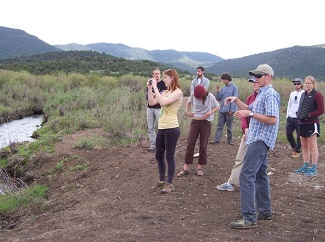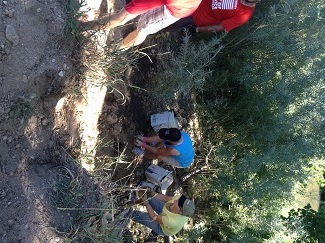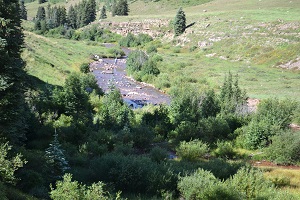Trout Unlimited is disappointed by the federal government shutdown because it undercuts fall fishing opportunities that are economically vital to communities bordering national parks and monuments. The shutdown also threatens to hamstring vital conservation efforts nationwide. For the first time in 17 years, our federal agency partners are not allowed to go to work with us, and the gates leading to some of the world’s best fisheries are locked. Trout Unlimited strongly urges Congress to restore government funding as soon as possible. Adverse impacts to TU are immediate. Many of TU’s science and restoration experts are prepared to attend this week’s Wild Trout Symposium in Yellowstone National Park, which is almost certain to be cancelled because the park is closed. Going on its 40th year, the symposium is a conference held every three years to bring together the best international experts on wild trout science and restoration techniques. This event is just the kind of activity that makes federal, state and local agencies, as well as their non-profit partners, more efficient at investing public and private resources in science and restoration. Thousands of dollars are lost, as are opportunities to improve trout conservation and make fishing better all across America.
Incredible fisheries will be off limits due to the closure of national parks, national wildlife refuges, and other federal facilities, at a time when they are most productive for anglers. Thousands of anglers were hoping to finish their fishing season chasing brown trout on Yellowstone’s famed Firehole River or cutthroats in the scenic Lamar Valley. Others were setting out to pursue the brightly colored brook trout of Shenandoah and Great Smoky Mountain national parks. Many of these anglers have campsites reserved, flights booked and hotels reserved that revolve around access to these national parks. Lands owned by the Forest Service and Bureau of Land Management will see many campgrounds closed, even barred shut when possible. To those planning on visiting these areas, and to the communities that depend on the tourism dollars anglers generate, Congress’ inability to act is ruining vacations and literally taking money from merchants at a time when it’s needed most.
In Colorado’s Front Range communities, TU is coordinating with federal partners to help recover from severe flooding. While emergency personnel are still on the job, many of those federal partners have been forced to stop working during a critical time for affected Coloradans.
TU’s 150,000 members and volunteers, who selflessly donate almost 700,000 hours to conservation every year, understand that getting trout and salmon streams protected, reconnected and restored requires working together with partners and allowing common sense to prevail. As we cooperate with local, state and federal governments, landowners and industry representatives every day, we hope that Congress can do likewise and restore funding for these vital operations. This government shutdown is a stark reminder that our nations parks and monuments have a very real economic value to Americans from coast to coast, and that the government’s role in managing those lands on behalf of all Americans cannot be underestimated. TU hopes this reminder will spur Congress to act and provide the funding to sustain the traditions treasured by the nearly 40 million Americans who hunt and fish.
---Steve Moyer, Vice President for Government Affairs Trout Unlimited















